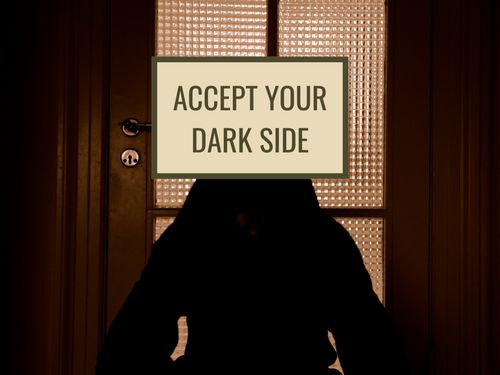The dangers of rejecting your dark side
Sep 05, 2021 · 2 mins read
0
Share

When we encounter something wicked, whether in society or ourselves, our first instinct is to reject and run away from it. Contrary to solving the problem, this only worsens it. Arthur Koestler makes this point in The Yogi And The Commissar with the help of a parable
Save
Share
The parable. A judge rules a thief’s hands must be cut off. After the amputation, the hand secretly follows the judge and strangles him. The takeaway: our civilized self(the judge) suffers when it casts off our untamed self(the criminal hand) instead of integrating it.
Save
Share
Who is the commissar? In Koestler’s essay, the commissar is a materialist who only deals with the tangible world. When he encounters scarcity and suffering, he uses logic and science to bring the world closer to Utopia.
Save
Share
The commissar’s dark side. The dark side doesn’t just mean something wicked, but also something unknown. The commissar’s mistake is believing the world and himself to be more transparent and knowable than they really are.
Save
Share
By rejecting anything not accessible to his senses and his materialist frameworks, the commissar is blind to intangible forces that upturn his tangible plans. He’s also a stranger to his own unconscious, repressing it instead of taking valuable clues from it.
Save
Share
Who is the yogi? The yogi is a spiritualist who believes the intangible world of visions, souls, and dreams to be the actual reality. Instead of changing the world outside, the yogi takes the internal route.
Save
Share
The yogi’s dark side. The yogi dissociates from the physical world too much, and slips into a passive existence. The yogi rejects all violence due to its dark possibilities, not realizing that violence, when wielded well, can protect what is noble and good.
Save
Share
First lesson of the parable. The judge locates the evil wrong. It wasn’t the hand that erred, but the thief’s conscience. The hand could’ve been tamed if the thief’s conscience improved. When permanently separated from the conscience, the hand became an even worse offender.
Save
Share
Second lesson of the parable. The judge also condemns the hand for eternity and leaves no room for redemption. In religious traditions, eternal judgement is God’s right only and man errs when he oversteps his limits.
Save
Share
Bottom line. What seems wicked might just be something powerful yet to be properly tamed. What is in the dark might be more important than what is visible to you. Channel wicked energies to noble ends, and walk into the dark. What upsets your worldview is also what updates it.
Save
Share
0